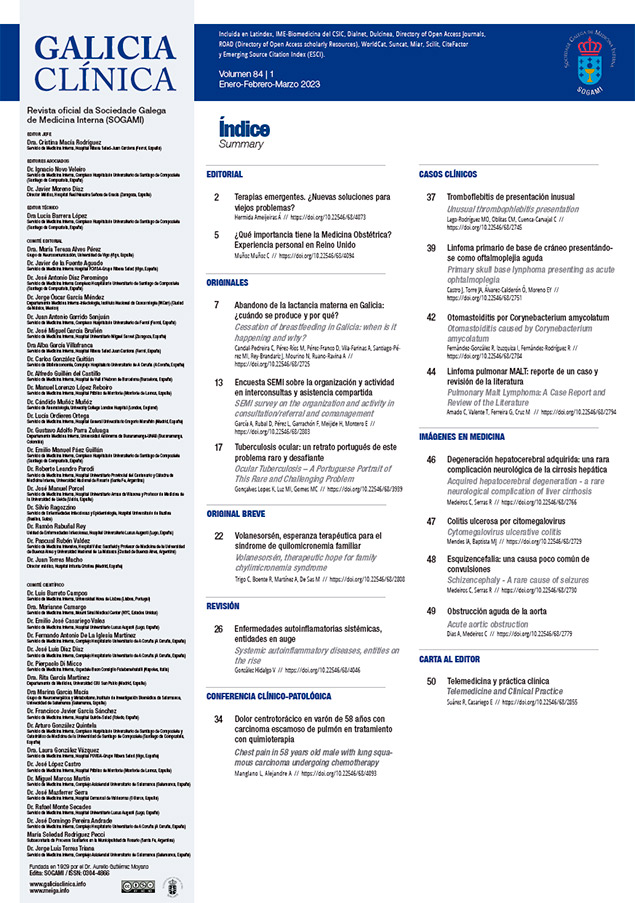Abstract
Systemic autoinflammatory diseases are relatively recent entities caused by dysregulation of the innate immune system. They are mainly caused by monogenic mutations, although there are entities produced by polygenic mutations or of multifactorial origin. Traditionally, they have been classified based on the presence or absence of fever, however, thanks to the advancement of knowledge of their Pathogenic mechanisms and the signaling pathways involved, recently it has been advocated to classify them based on the latter. The three more important groups of monogenic autoinflammatory diseases are type 1 interferonopathies, inflammasomopathies and dysregulation in the nuclear factor kappa light chain enhancer of activated B cells [NF-kB] pathway (relopahies). In this review, the main pathways involved, the main syndromes of each of these groups and the therapeutic approach are addressed.

This work is licensed under a Creative Commons Attribution-NonCommercial-NoDerivatives 4.0 International License.
Copyright (c) 2023 GaliciaClinica - Official Journal of the SOGAMI


